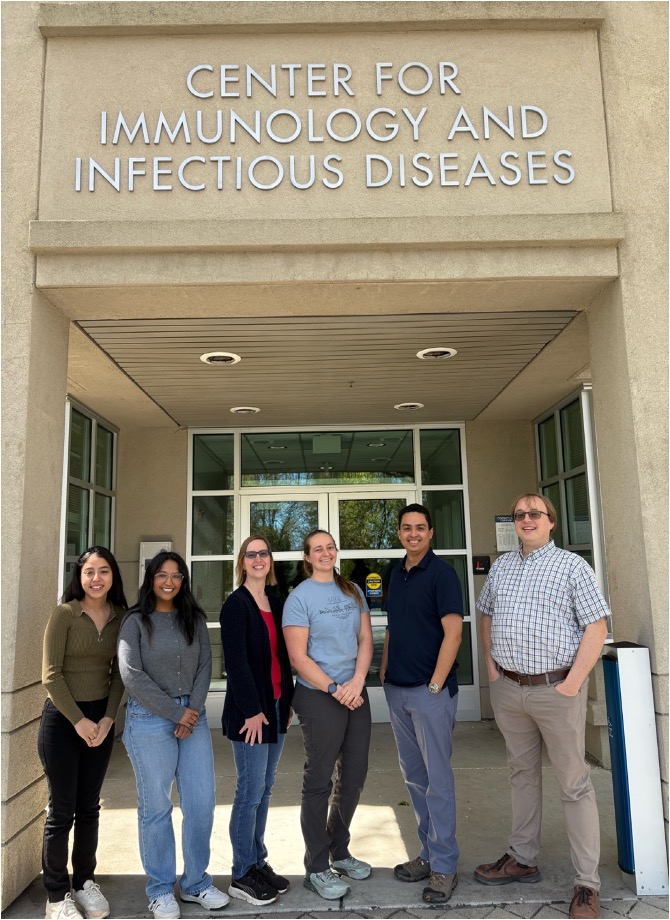This year's School of Medicine winner is Dr. Sebastian Winter

The Winter Lab studies the microbial ecosystems that live in the human body, particularly in the intestinal tract. While most of these microbes are beneficial, helping with digestion, producing vitamins and protecting against infection, Dr. Winter and his team focus on understanding how harmful pathogens such as Salmonella, Shigella and Yersinia overcome these protective communities to cause disease. Their research aims to understand the molecular, cellular and chemical processes involved in these interactions so that new strategies can be designed to correct imbalances and support patients with conditions such as inflammatory bowel disease.
Safety is essential in the Winter Lab, especially due to their work with potentially hazardous bacteria. Dr. Winter credits their safety and building coordinator, Niki Drazenovich, for guiding the team through training, permits and biological use authorizations while also encouraging a strong culture of care. Dr. Winter also makes safety a personal matter, stating,
“It is never worth risking your health or well-being for any scientific experiment. Even if the experiment was to lead to a Nobel prize, it’s never worth risking injury or worse for that.”
Trust and honesty are vital parts of the lab’s environment. Members are encouraged to report accidents or near misses, so the team can improve procedures and reduce risks moving forward. Engagement is also key; Dr. Winter involves lab members in creating and revising safety procedures, asking for their input on risk management and best practices. He also believes small choices mitigate the negative emotions that are sometimes felt when blindly following rules. For example, lab members are allowed to choose the color and design of their safety glasses, which helps reinforce compliance while also allowing for personal expression.
Looking ahead, the Winter Lab is expanding its research beyond gut microbial communities and diarrheal diseases to study how beneficial microbes interact with chronic conditions such as kidney disease, colorectal cancer and complications in stem cell transplants. Dr. Winter sees this as a promising field to further understand how microbes protect, or in some instances harm, human health.